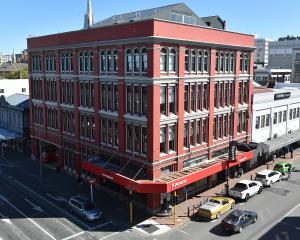With a major Government-subsidised insulation scheme coming to an end, almost half of Dunedin's houses are still ''cold, old and draughty'' and a powerful group of organisations is planning to do something about it. Dan Hutchinson reports.
A large group of the city's insulation industry and community organisations are vowing to insulate all of Dunedin's cold homes within 12 years.
The Dunedin City Council estimates 18,800 of the city's 40,000 homes are still inadequately insulated, with many colder than the World Health Organisation standard (18degC).
More than 70 people attended last week's Cosy Homes Workshop in Dunedin, hosted by the Blueskin Community Resilience Trust (BCRT).
Cosy Homes and BCRT project manager Dr Niki Bould said all those at the meeting had agreed to set a target of 2025 to finish the job of insulating all of Dunedin's homes.
The Energy Efficiency and Conservation Authority (EECA) had pledged $10,000 in seed funding to get the venture off the ground.
The Government-subsidised Warm Up New Zealand: Heat Smart programme is due to expire this month, after insulating 230,000 homes across the country.
Dr Bould said the work that had been done was great but they did not want to be relying on smaller projects in the future to get the job done.
''We will be living in cold, old, draughty homes for the next 50 years and that is not good enough.''
She said they wanted to have one organisation to co-ordinate and liaise with the public over all the various subsidies, grants and financing arrangements available for those wanting to insulate their home.
The Government has allocated $100 million over three years to the new Warm Up New Zealand: Healthy Homes programme. That helps mainly low-income households.
The programme will provide grants of up to 60% and will often involve other funding partners, such as trusts, primary health organisations, and iwi. Energy and Resources Minister Simon Bridges was unavailable to answer questions but has earlier said the programme was part of the Government's response to child poverty.
Dunedin South MP Clare Curran said Labour was proposing minimum standards for insulation in rental properties that landlords would have to comply with.
''At the moment you don't know what the subsidies are and a lot of them you are not eligible for,'' Ms Curran said.
Groups including the council, Otago Community Trust, Presbyterian Support Otago, EECA and the Otago Regional Council have been working on home insulation.













